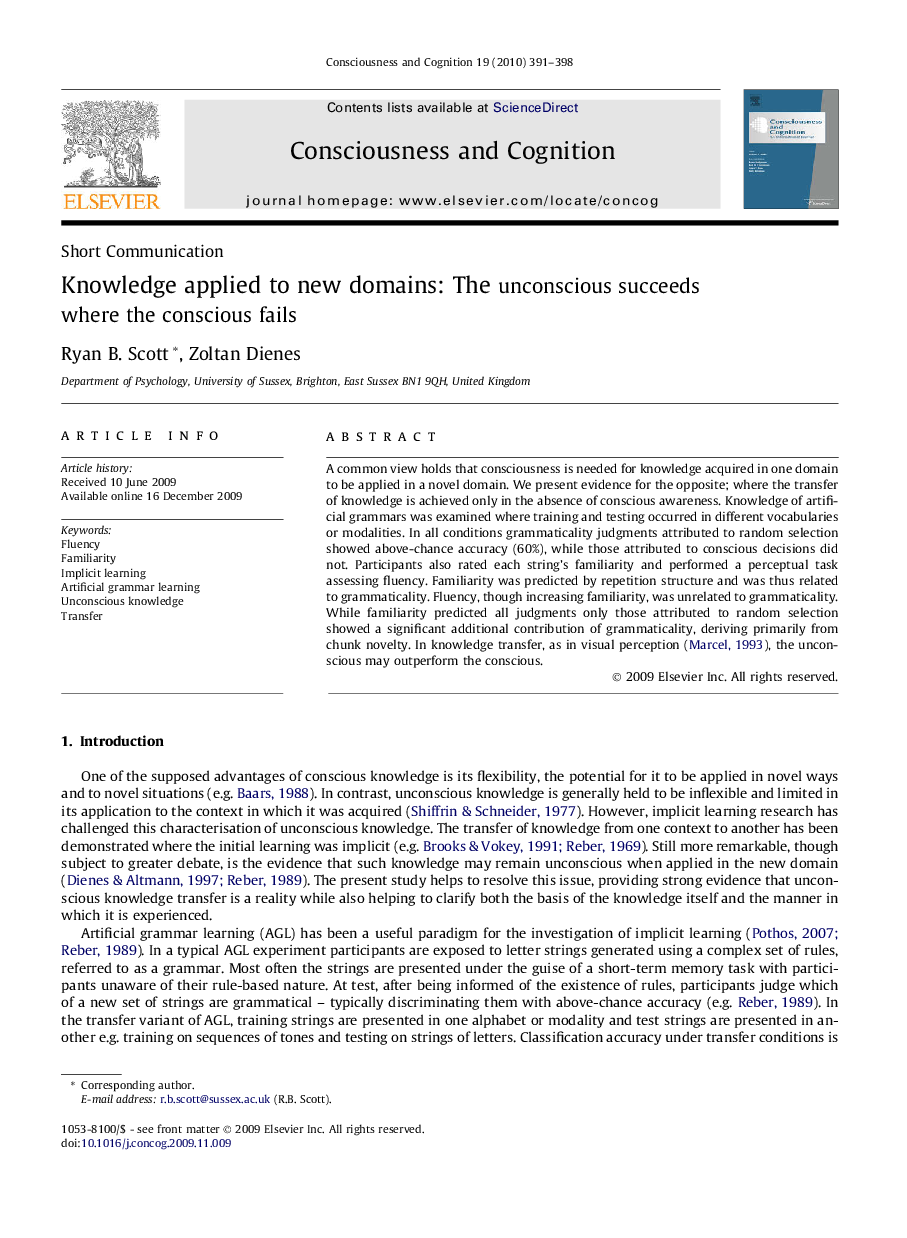| کد مقاله | کد نشریه | سال انتشار | مقاله انگلیسی | نسخه تمام متن |
|---|---|---|---|---|
| 10458787 | 922280 | 2010 | 8 صفحه PDF | دانلود رایگان |
عنوان انگلیسی مقاله ISI
Knowledge applied to new domains: The unconscious succeeds where the conscious fails
دانلود مقاله + سفارش ترجمه
دانلود مقاله ISI انگلیسی
رایگان برای ایرانیان
کلمات کلیدی
موضوعات مرتبط
علوم زیستی و بیوفناوری
علم عصب شناسی
علوم اعصاب شناختی
پیش نمایش صفحه اول مقاله

چکیده انگلیسی
A common view holds that consciousness is needed for knowledge acquired in one domain to be applied in a novel domain. We present evidence for the opposite; where the transfer of knowledge is achieved only in the absence of conscious awareness. Knowledge of artificial grammars was examined where training and testing occurred in different vocabularies or modalities. In all conditions grammaticality judgments attributed to random selection showed above-chance accuracy (60%), while those attributed to conscious decisions did not. Participants also rated each string's familiarity and performed a perceptual task assessing fluency. Familiarity was predicted by repetition structure and was thus related to grammaticality. Fluency, though increasing familiarity, was unrelated to grammaticality. While familiarity predicted all judgments only those attributed to random selection showed a significant additional contribution of grammaticality, deriving primarily from chunk novelty. In knowledge transfer, as in visual perception (Marcel, 1993), the unconscious may outperform the conscious.
ناشر
Database: Elsevier - ScienceDirect (ساینس دایرکت)
Journal: Consciousness and Cognition - Volume 19, Issue 1, March 2010, Pages 391-398
Journal: Consciousness and Cognition - Volume 19, Issue 1, March 2010, Pages 391-398
نویسندگان
Ryan B. Scott, Zoltan Dienes,